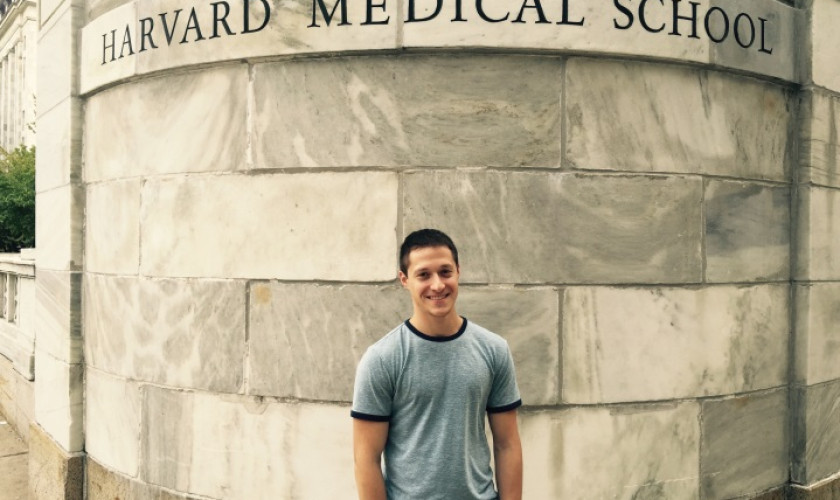Genetic research
When I turned 18 years old, this fascination led me to study Biology at The College of New Jersey, just an hour’s drive from where I grew up. I took my first steps into a genetic research lab during my freshman year, initially studying DNA in snakes and then later in crabs. From those experiences, I knew that genetic research was the career I wanted to pursue, though I was looking for a more human disease focus, something my small liberal arts college did not offer.
Outside of the “Jersey bubble”
The EuroScholars program provided me with an amazing opportunity to pursue my research interests and venture outside of the “Jersey bubble.” When first applying to EuroScholars, I was unsure on which lab I wanted to join, let alone which country to live in. I was really fortunate to communicate with a EuroScholars representative, who listened to my scientific interests, and was able to identify several labs which were highly tailored to my goals. That’s how I found myself in the Human Genetics Department of Leiden University in the Netherlands. For seven months during my sophomore year, I examined a genetic engineering strategy called exon skipping in order to treat a genetic disease called CADASIL, which is a heritable stroke and dementia syndrome. I daily worked with human cells from patients who had the disease, injected genetic material into those cells to modify them, and then analyze the effect in order to assess whether our strategy could be used to treat CADASIL. Each day I would ride my bicycle to the medical center in Dutch style, and work with scientists in an international setting. Although English was the standard language of communication, my skills learning Dutch in a language course made me feel more immersed in the culture. My time in this lab convinced me to pursue a Ph.D. in the biomedical sciences.
First prize for presentation
Even though my time in Leiden and EuroScholars passed, the connection persisted when I returned to The College of New Jersey and even beyond. During my junior year, I presented the results of my abroad research at a national scientific conference, and later at a regional convention, where I was awarded first prize for an oral presentation. My extensive experience working with small fragments of genetic material made me a competitive candidate for a summer internship at Harvard University’s Systems Biology program, where I helped develop a genomic diagnostic method for the Ebola crisis. During my senior year, more than a year after I left Leiden, my abroad work was accepted to be published in a scientific journal. In applying to Ph.D. programs, my EuroScholars experience was pivotal in guaranteeing my acceptances. Not only did my principal investigator (PI) from Leiden provide me with a strong letter of recommendation, but also each interviewer asked about my abroad research without fail.
Going to Harvard University
I ultimately decided to accept a Ph.D. offer from Harvard University in their Biological and Biomedical Sciences program. I am writing this article just three days after moving to Boston to begin my first year, and I couldn’t be more excited for the future and grateful for the past. Perhaps not surprisingly, my past with EuroScholars still influences my future. The first lab rotation I selected will be on the same genetic disease, CADASIL, that I studied in Leiden. In fact, the PI of this lab collaborates with my previous PI from Leiden University. If I decide to join this lab for my thesis, I foresee designing a project that meets the goals of both labs, perhaps even establishing my previous PI a co-mentor, and me traveling back and forth between Boston and Leiden. Just an idea for now, but we’ll see.

